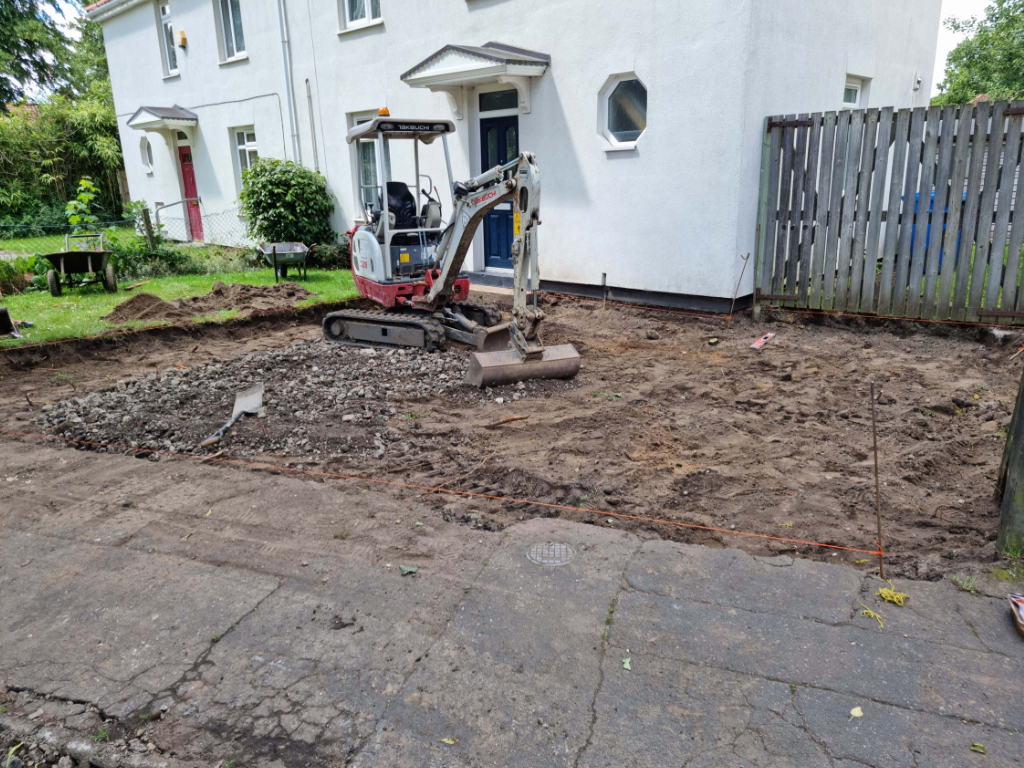Cost-Effective Solutions: Concrete vs. Asphalt Driveways
Introduction: Choosing the right material for your driveway is a significant decision that can impact the aesthetic appeal and long-term cost of maintaining your property. At Bury St Edmunds Driveway Solutions, we understand the importance of balancing durability, maintenance requirements, and budget considerations. Here’s a comprehensive comparison of concrete and asphalt driveways to help you make an informed choice:
Durability and Longevity
Concrete Driveways:
- Strength: Concrete is renowned for its durability and can withstand heavy loads without cracking.
- Longevity: Properly maintained concrete driveways can last 30 years or more, making them a long-term investment.
Asphalt Driveways:
- Flexibility: Asphalt is flexible and less prone to cracking during freeze-thaw cycles.
- Lifespan: Asphalt driveways typically last 20 years with proper care and periodic sealing.
Aesthetic Appeal
Concrete Driveways:
- Customisation: Available in various colours, textures, and patterns, allowing for customised designs to match your home’s style.
- Appearance: Provides a sleek, modern look that enhances curb appeal and can increase property value.
Asphalt Driveways:
- Appearance: Offers a traditional black appearance that complements many architectural styles.
- Uniformity: Provides a smooth surface that is ideal for driveways and is less prone to staining from oil or fuel spills.
Maintenance Requirements
Concrete Driveways:
- Sealing: Requires periodic sealing to protect against stains and moisture penetration.
- Crack Repair: Minor cracks can be repaired easily to maintain the driveway’s integrity.
Asphalt Driveways:
- Sealing: Requires more frequent sealing (every 3-5 years) to prevent deterioration from UV rays and water infiltration.
- Resurfacing: May need resurfacing every 10-15 years to address wear and tear.
Cost Considerations
Concrete Driveways:
- Initial Cost: Typically more expensive upfront due to material and labour costs.
- Long-Term Cost: Lower maintenance costs over time can offset initial investment expenses.
Asphalt Driveways:
- Initial Cost: Generally more cost-effective to install compared to concrete.
- Long-Term Cost: Higher maintenance costs due to periodic sealing and potential repairs.
Environmental Impact
Concrete and Asphalt:
- Runoff: Both materials can contribute to stormwater runoff, although permeable options for both are available.
- Recycling: Asphalt driveways are more readily recyclable, which can reduce environmental impact during replacement.
Conclusion: Both concrete and asphalt driveways offer distinct advantages depending on your priorities for durability, maintenance, aesthetics, and budget. At Bury St Edmunds Driveway Solutions, we specialise in creating bespoke driveways tailored to your needs. Whether you prefer the longevity and customisation of concrete or the initial affordability of asphalt, our team can help you make the right choice for your property.
Call us on: 01284 331 496
Click here to find out more about Bury St Edmunds Driveway Solutions
Click here to complete our contact form and see how we can help you with your driveway needs.

